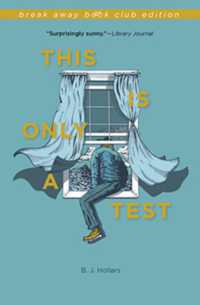基本説明
New in paperback. Hardcover was publishesd in 2007. This book examines parent-physician conversations asking how small differnces in phrasing affect prescribing decisions and how physicians deal with the social dilemma pitting indiviudals against a greater social good.
Full Description
Antibiotics will soon no longer be able to cure common illnesses such as strep throat, sinusitis and middle ear infections as they have done for the last 60 years. Antibiotic-resistant bacteria are increasing at a much faster rate than new antibiotics to treat them are being developed. The prescription of antibiotics for viral illnesses is a key cause of increasing bacterial resistance. Despite this fact, many children continue to receive antibiotics unnecessarily for the treatment of viral upper respiratory tract infections. Why do American physicians continue to prescribe inappropriately given the high social stakes of this action? The answer appears to lie in the fundamentally social nature of medical practice: physicians do not prescribe as the result of a clinical algorithm but prescribe in the context of a conversation with a parent and a child. Thus, physicians have a classic social dilemma which pits individual parents and children against a greater social good.
This book examines parent-physician conversations in detail, showing how parents put pressure on doctors in largely covert ways, for instance in specific communication practices for explaining why they have brought their child to the doctor or answering a history-taking question. This book also shows how physicians yield to this seemingly subtle pressure evidencing that apparently small differences in wording have important consequences for diagnosis and treatment recommendations. Following parents use of these interactional practices, physicians are more likely to make concessions, alter their diagnosis or alter their treatment recommendation. This book also shows how small changes in the way physicians present their findings and recommendations can decrease parent pressure for antibiotics. This book carefully documents the important and observable link between micro social interaction and macro public health domains.
Contents
1. The Miracle Drug: The Context of Modern Antibiotic Usage
2. Foregrounding the Relevance of Antibiotics in the Problem Presentation
3. Alternative Practices for Asking and Answering History-Taking Questions
4. No Problem (No Treatment) Diagnosis Resistance
5. Treatment Resistance
6. Overt Forms of Negotiation
7. Physician Behavior That Influences Parent Negotiation Practices
8. Conclusion
Apppendix
Notes
References
Index







